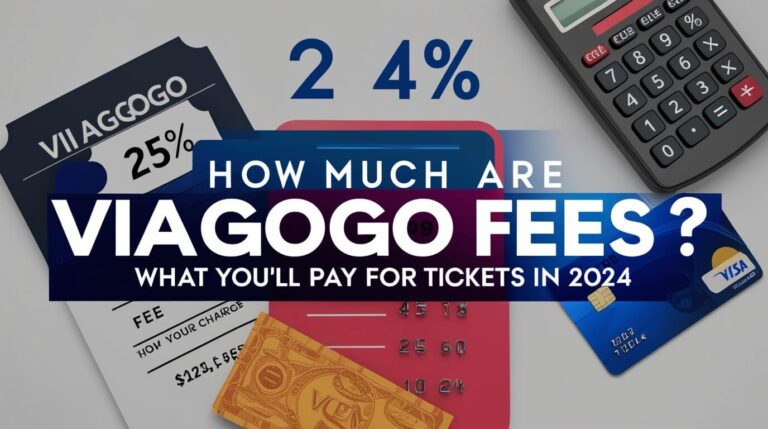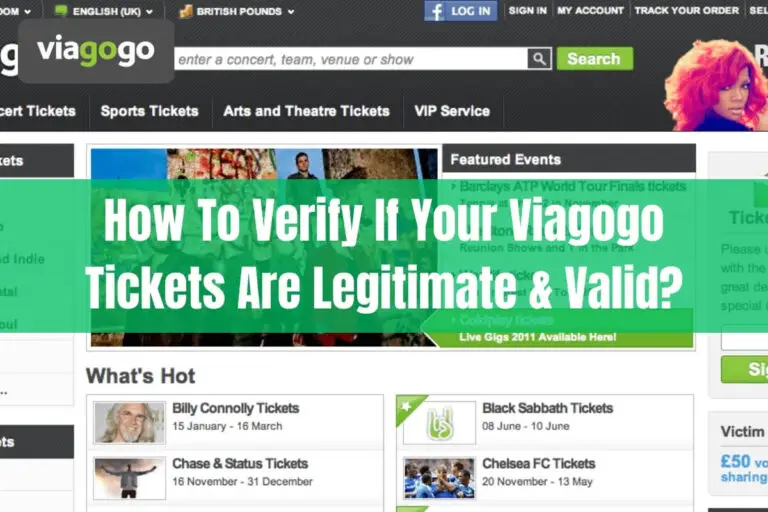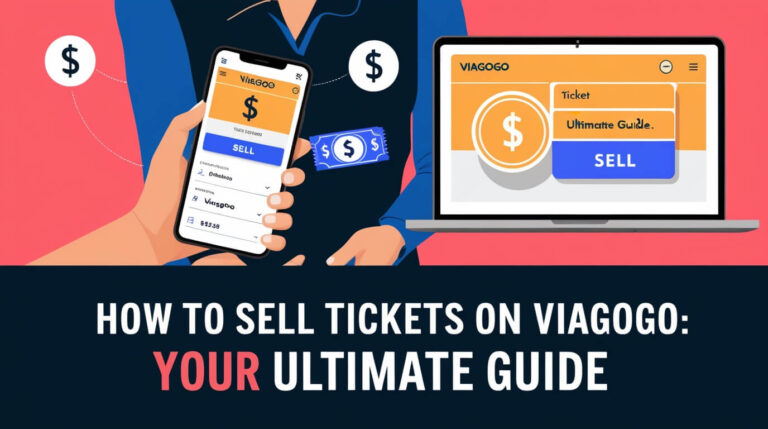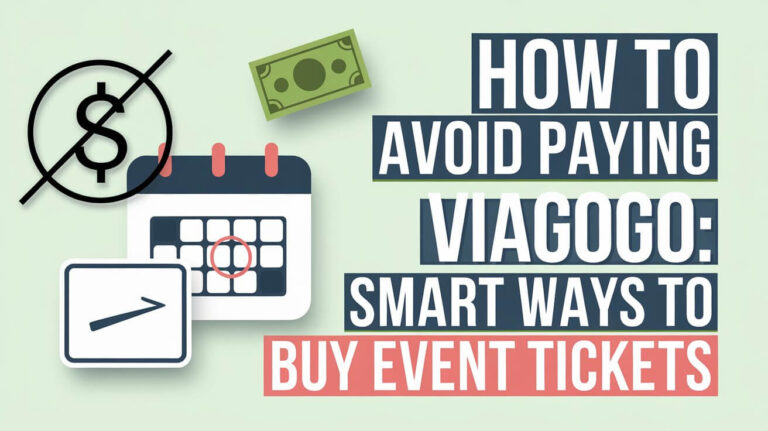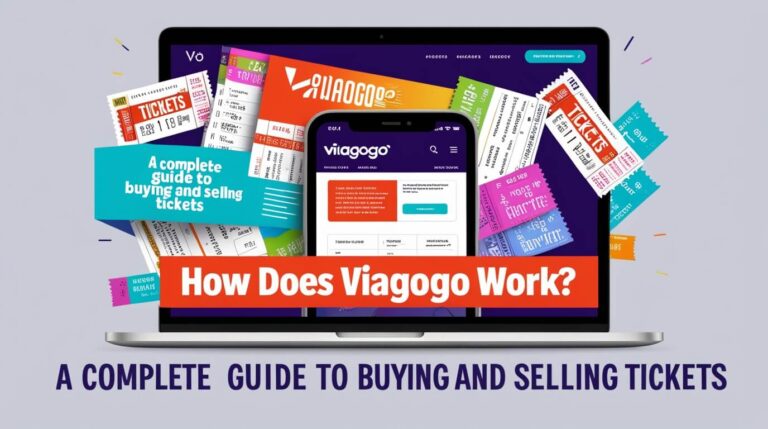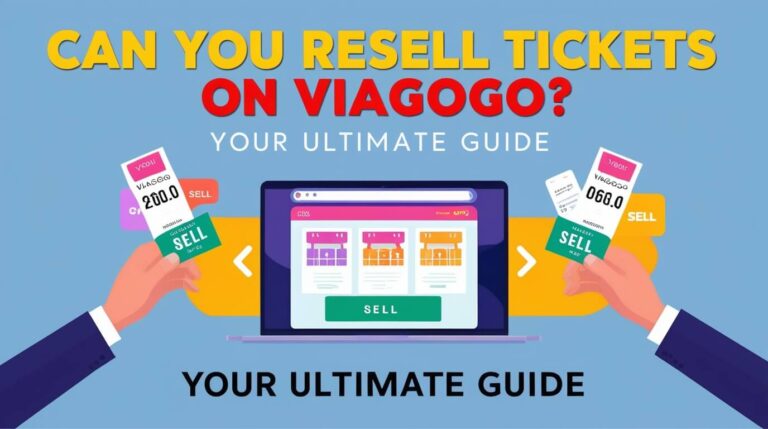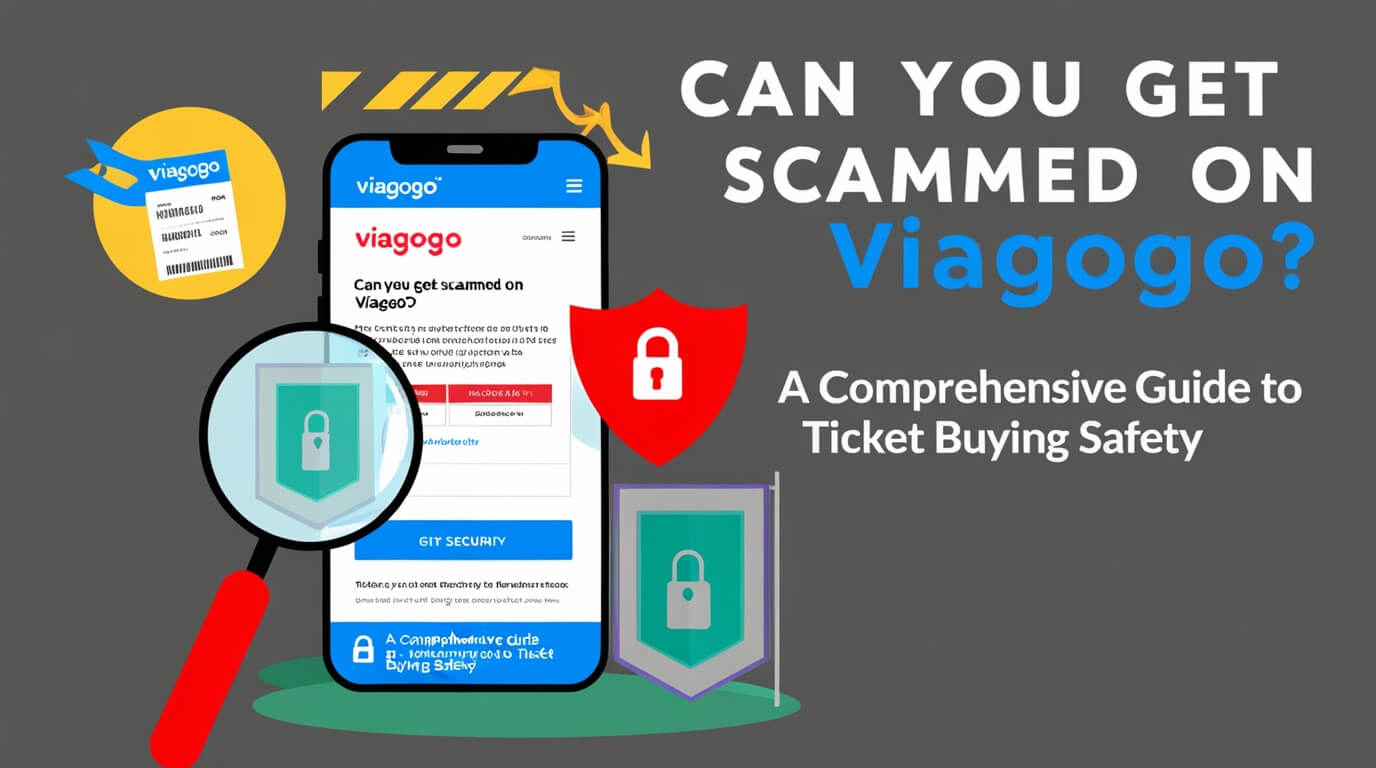
Yes, you can get scammed on Viagogo. The ticket resale platform has faced numerous complaints and legal issues related to fraudulent tickets, overpricing, and misleading practices. However, understanding the risks and taking precautions can help you avoid potential scams. This guide covers everything you need to know about safely using Viagogo, spotting red flags, and protecting yourself from ticket fraud.
What is Viagogo and How Does It Work?
Viagogo is an online marketplace for buying and selling tickets to events like concerts, sports games, and theater performances. It acts as a middleman between ticket sellers and buyers.
The Viagogo Business Model
Viagogo doesn’t sell tickets directly. Instead, it provides a platform for individuals and businesses to resell tickets. This model can lead to higher prices and increased risk of scams.
Types of Tickets Available on Viagogo
You’ll find various ticket types on Viagogo:
- General Admission
- Seated tickets
- VIP packages
- Last-minute deals
The wide range of options can be appealing, but it also creates opportunities for scammers to take advantage of buyers.
Common Scams and Issues on Viagogo
Many users have reported problems when buying tickets through Viagogo. Let’s look at some frequent issues.
Overpriced Tickets: The Hidden Markup Problem
One of the biggest complaints about Viagogo is inflated ticket prices. Sellers often list tickets at much higher prices than their face value. For example, a ticket with a $50 face value might be sold for $200 or more on Viagogo.
This markup isn’t always clear to buyers. The platform’s fees and currency conversion rates can further obscure the true cost.
Fake or Invalid Tickets: A Real Risk?
While Viagogo claims to verify tickets, some buyers have received fake or invalid tickets. This can lead to heartbreaking situations where fans are turned away at the venue.
In some cases, scammers sell the same ticket multiple times, leaving buyers with worthless duplicates.
Last-Minute Ticket Delivery: Stress and Uncertainty
Viagogo often delays ticket delivery until shortly before the event. This practice can cause anxiety for buyers and makes it harder to resell tickets if plans change.
Some users report not receiving their tickets at all, leaving them scrambling at the last minute.
Misleading Seat Information: Not Getting What You Paid For
Another common complaint is inaccurate seat information. Buyers sometimes find their seats are in a different section or have a worse view than expected.
This problem is especially frustrating for fans who pay premium prices for what they believe are prime seats.
Red Flags: How to Spot Potential Scams on Viagogo
Knowing what to look out for can help you avoid scams on Viagogo. Here are some warning signs:
Suspiciously Low Prices
If a ticket price seems too good to be true, it probably is. Unusually low prices often indicate fake tickets or a bait-and-switch scam.
Vague or Inconsistent Ticket Details
Be wary of listings with unclear or changing information about seat locations, event dates, or ticket types.
Seller Profiles and Reviews: What to Look For
Check the seller’s history and reviews if possible. New accounts with no feedback or those with negative reviews should raise suspicion.
Viagogo’s Buyer Protection: Does It Protect You?
Viagogo offers a buyer guarantee, but how effective is it in practice?
Understanding Viagogo’s Guarantee
Viagogo promises to provide comparable or better tickets if there’s a problem with your purchase. They also offer refunds in some cases.
Limitations of Viagogo’s Buyer Protection
Despite these promises, many users report difficulties getting refunds or replacement tickets. The protection may not cover all situations, leaving some buyers out of luck.
Real-Life Experiences: Viagogo Scam Stories and Successes
Let’s look at some firsthand accounts from Viagogo users.
Cautionary Tales: When Viagogo Goes Wrong
Many buyers have shared horror stories about their Viagogo experiences. For instance, one user paid $600 for tickets with a face value of just $14. Another arrived at a concert only to find their tickets were invalid.
These stories highlight the risks of using the platform and the emotional toll of being scammed.
Positive Experiences: When the System Works
It’s not all bad news. Some users report smooth transactions and successful ticket purchases through Viagogo. These positive experiences often involve thorough research and careful attention to detail when buying.
Legal and Ethical Concerns Surrounding Viagogo
Viagogo’s practices have raised legal and ethical questions in many countries.
Ticket Resale Laws in Different Countries
Some nations have strict laws about ticket reselling. In the UK, for example, resellers must disclose the original ticket face value and seat numbers.
Viagogo’s Past Legal Issues
Viagogo has faced legal action in several countries. In 2018, the UK’s Competition and Markets Authority took action against the company for misleading pricing information.
Alternatives to Viagogo: Safer Ticket-Buying Options
If you’re wary of using Viagogo, consider these alternatives:
Official Ticket Sellers and Primary Markets
Buying directly from the event organizer or official ticketing partner is often the safest option. It eliminates the risk of fake tickets and inflated prices.
Reputable Secondary Market Platforms
Other resale sites like StubHub or Ticketmaster’s Fan-to-Fan Resale might offer better protections for buyers.
Tips for Safely Using Viagogo
If you decide to use Viagogo, follow these tips to protect yourself:
Research Before You Buy
Check the event details on the official website. Compare prices across different platforms to ensure you’re not overpaying.
Understanding Pricing and Fees
Read the fine print carefully. Be aware of all fees before completing your purchase.
Payment Methods: Choosing the Safest Option
Use a credit card when possible. This gives you more protection if something goes wrong with your purchase.
What to Do If You’ve Been Scammed on Viagogo
If you fall victim to a scam on Viagogo, take these steps:
Contacting Viagogo Customer Service
Reach out to Viagogo immediately. Document all communication and be persistent in seeking a resolution.
Disputing Charges with Your Bank or Credit Card Company
If Viagogo doesn’t help, contact your bank to dispute the charges. Many credit cards offer fraud protection for situations like this.
Reporting Fraud to Authorities
Consider reporting the scam to local consumer protection agencies or law enforcement. This can help prevent others from falling victim to similar scams.
The Future of Online Ticket Resale: Will Scams Become a Thing of the Past?
As technology evolves, so do efforts to combat ticket fraud.
Technological Advancements in Ticket Verification
Blockchain and digital ticketing technologies are making it harder for scammers to produce fake tickets.
Potential Regulatory Changes
Governments worldwide are considering stricter regulations on ticket resale platforms. These changes could provide better protection for consumers in the future.
Conclusion
You can get scammed on Viagogo. The site makes it easy for dishonest sellers to trick buyers. But you can lower your risk by being careful. Do your homework, check prices on other sites, and trust your gut. If a deal looks too good, it probably is.
Buying from official sellers is safest. If you use Viagogo or similar sites, be very careful. Use the tips in this guide to protect yourself.
Know the risks and be smart when buying tickets online. This will help you stay safe and enjoy your events.

